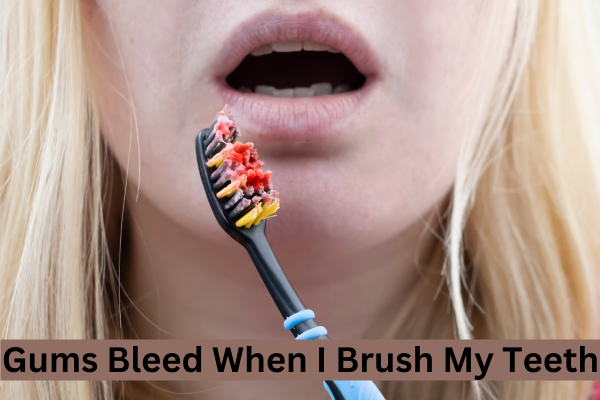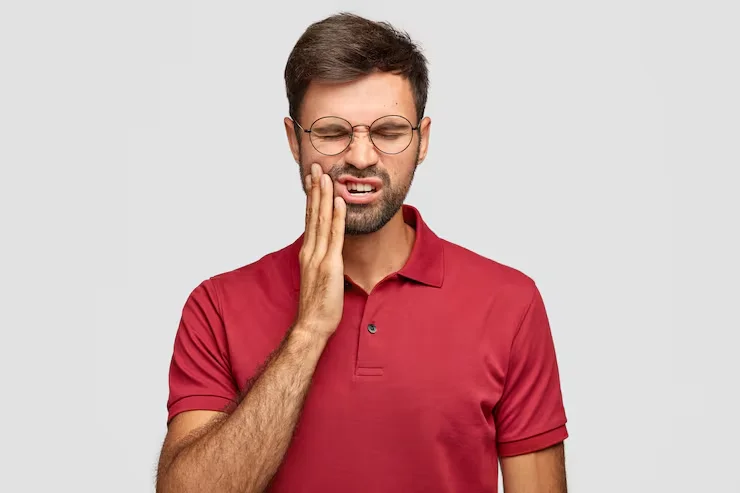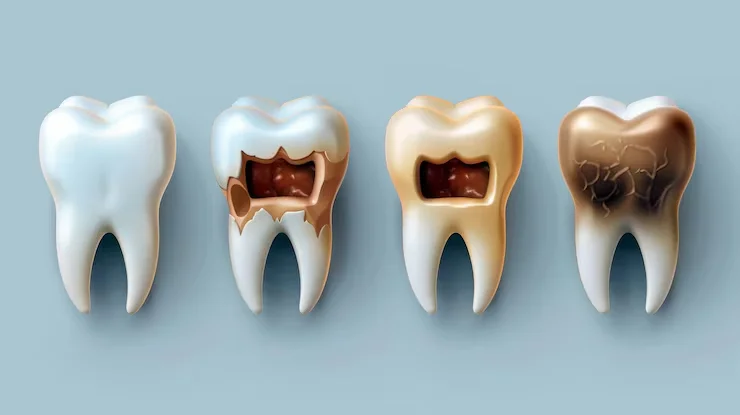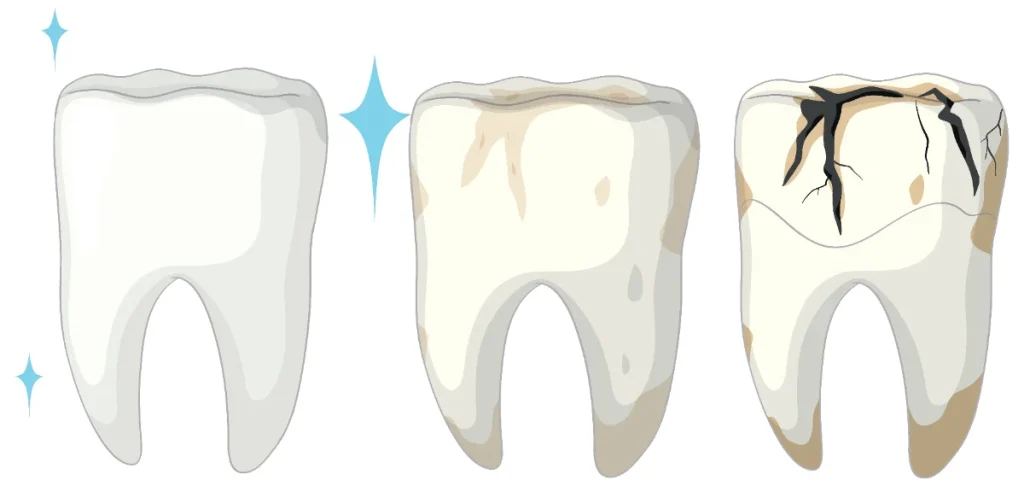When brushing your teeth, have you ever seen blood in the sink? Well, you’re not alone in wondering, “Why do my gums bleed when I brush my teeth?”
It’s important to understand that while bleeding gums might be a worrying concern, several underlying reasons may also exist. Knowing why your gums bleed when you brush is the first step to achieving the best possible oral health.
Keep reading to find out what causes bleeding gums and get practical tips for a healthy and confident smile. Let’s explore oral health and find out how to keep your gums in good shape, free from bleeding.
Understanding Gum Health
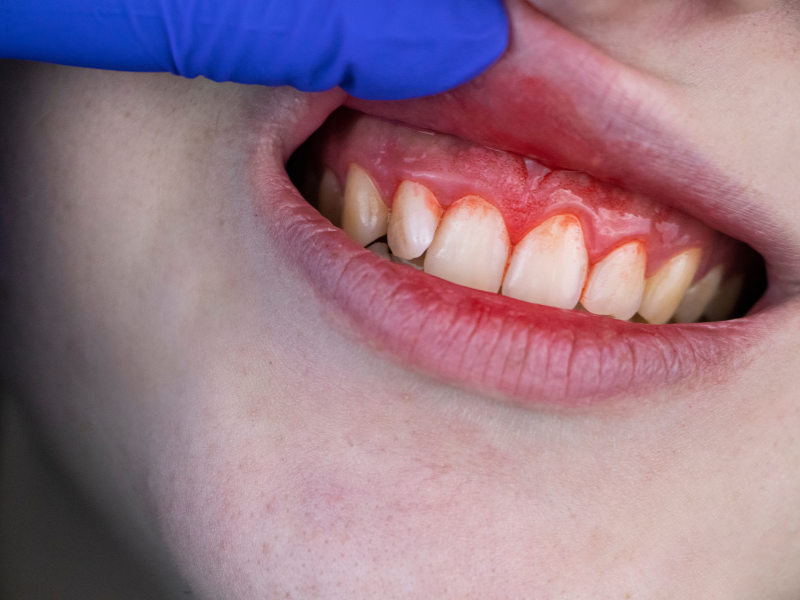
Before answering the question, “Why do my gums bleed when I brush my teeth?” it is important to understand gum health. Learning about the significance of robust gum health cannot be overstated in oral well-being. Scientifically termed gingiva, gums create a protective embrace around your teeth, a formidable defense against harmful bacteria and potential infections.
The bleeding gums during your brushing routine could indicate an underlying concern that warrants thorough attention. This occurrence often necessitates a closer look to identify and address potential issues, ensuring a healthy oral environment.
What are the Common Causes of Bleeding Gums?
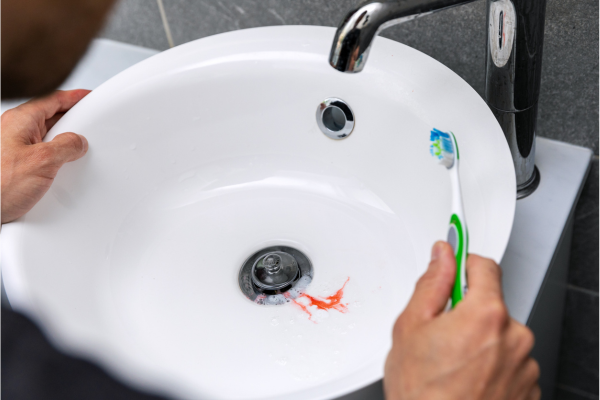
Frequently, the root causes behind bleeding gums can be attributed to either improper brushing techniques or the presence of gum disease. Gum disease, a problem for many adults, is sometimes indicated by bleeding gums.
Around 47.2% of persons aged 30 and over have gum disease, underscoring both its ubiquity and the frequent occurrence of bleeding gums.
Numerous factors can trigger bleeding gums during brushing, with the following ten being the most prominent culprits:
- Aggressive Brushing: Brushing your teeth with excessive force.
- Worn Toothbrush: Use an old toothbrush with worn-out bristles.
- Poorly-Fitted Dentures: Ill-fitting dentures or dental restorations.
- Incorrect Flossing: Flossing inaccurately or infrequently.
- Gingivitis: The initial phase of gum disease, marked by inflammation of the gums.
- Medication: Certain medications may contribute to gum bleeding.
- Periodontitis: A progressed stage of gum disease that can result in severe symptoms.
- Pregnancy: Pregnancy can cause inflamed gums, known as pregnancy gingivitis.
- Tooth Abscess: An infected tooth can result in bleeding, swelling, and discomfort.
- Hygiene Habits: Insufficient brushing and flossing can result in sporadic gum bleeding.
Addressing occasional gum bleeding often requires improving your dental care routine. If gum bleeding is linked to gingivitis, seeking guidance from your dentist can aid in restoring dental health. Similarly, if it results from brushing or flossing techniques, your dentist can offer valuable advice to enhance these practices without causing harm to your gums.
Issues stemming from dentures or dental restorations can also be resolved through professional assistance. However, when the underlying cause remains unclear, consulting your primary care physician may be necessary to delve further into the matter.
Some Diseases Associated with Bleeding Gums
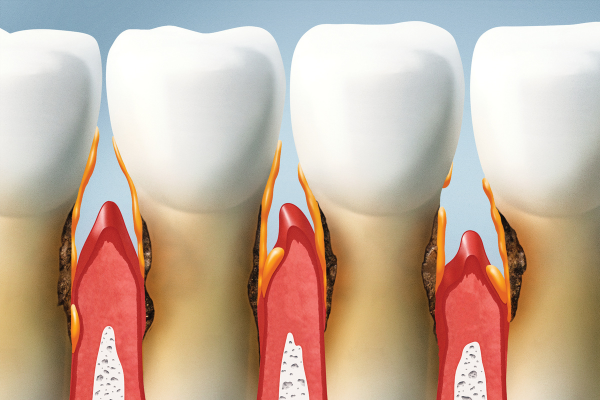
There are instances when, even after receiving a clean bill of dental health and proper technique from your dentist, you may still wonder, “Why do my gums bleed when I brush my teeth?” raising concerns about potential long-term harm to your teeth.
At this juncture, seeking guidance from your primary care doctor becomes imperative. While gum disease is a common culprit behind bleeding gums, this phenomenon can also be a symptom associated with various diseases and health conditions.
When your teeth and gums are in good shape, yet bleeding persists during brushing, consider discussing the following aspects with your doctor:
- Diabetes: Bleeding and swollen gums can signal type 1 and 2 diabetes. Diabetes affects your ability to combat germs, rendering individuals with this condition more susceptible to gum disease.
- Hemophilia: This clotting disorder can lead to bleeding gums and significant bleeding from minor cuts or routine dental procedures.
- Inadequate Vitamin C: Vitamin C is vital for tissue growth, repair, and maintaining strong teeth and bones. Insufficient vitamin C hampers proper gum healing. In severe instances of lacking vitamin C (known as scurvy), gum bleeding becomes common.
- Inadequate Vitamin K: Insufficient vitamin K might be the reason behind excessive gum bleeding. This vitamin deficiency can impair blood clotting.
- Leukemia: Leukemia disrupts blood platelet counts, making blood clotting less efficient. Consequently, ongoing bleeding tendencies, including in the gums, become more pronounced.
- Thrombocytopenia: In this condition, insufficient platelets hinder blood clotting, leading to increased bleeding throughout the body, including the gums.
Preventive Steps for Stopping Bleeding Gums
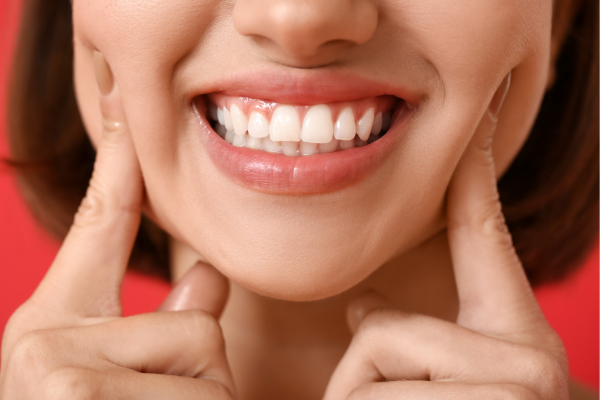
Maintaining optimal gum health is essential for a confident smile and overall well-being. If you’re wondering how to address bleeding gums, here are actionable steps to prevent and treat this common issue.
Embrace Good Oral Hygiene Practices
The foundation of combating bleeding gums is improving your daily oral hygiene routine. Make brushing your teeth with a soft-bristled toothbrush and toothpaste with fluoride a daily habit. Remember to floss once a day to remove debris from between your teeth and along the gumline. Regular dental appointments for checkups and professional cleanings are pivotal in your gum health.
Utilize Hydrogen Peroxide Rinses
Hydrogen peroxide, typically used to disinfect cuts, has remarkable benefits for oral health. After brushing and flossing, consider swishing a diluted hydrogen peroxide solution in your mouth as you would with mouthwash. Studies suggest hydrogen peroxide can reduce gum inflammation and bleeding and combat gingivitis. Remember to spit it out after rinsing.
Optimize Vitamins C and K Intake
Surprisingly, your diet significantly impacts gum health. Incorporating foods rich in Vitamins C and K can help prevent gum bleeding. Vitamin C boosts your immune system, guarding against gum infections and inflammation. Meanwhile, Vitamin K aids in blood clotting, preventing easy gum bleeding after brushing or flossing. Include these foods in your diet:
- Citrus fruits
- Bell peppers
- Tomatoes
- Broccoli
- Kale
- Avocados
- Blueberries
Seek Professional Dental Care
If your gum bleeding persists for a week or worsens, consulting your dentist is essential. He will check your oral health and deal with any hidden problems. Deep cleaning might be recommended to eliminate plaque buildup from your teeth and gum line, promoting healthier gums.
Conclusion
Thank you for engaging with our post on why my gums bleed when I brush my teeth. If you’ve been grappling with prolonged gum bleeding, the team at Osseo Family Dental is ready to provide support.
Reach out today to arrange an appointment with the finest dentist in Osseo, MN. Your oral well-being is our foremost concern.
FAQs
-
Is it normal for gums to bleed when brushing teeth?
Although your intention to maintain a pristine smile is commendable, your efforts may be inadvertently excessive. Brushing or flossing your teeth too vigorously can lead to bleeding gums or, in some cases, even bruising. This concern becomes more pronounced when using a toothbrush with overly firm bristles.
-
How can I strengthen my teeth naturally?
Below, you’ll find a compilation of ten natural solutions that can aid in the restoration and strengthening of receding gums:
- Oil Pulling
- Salt Water Rinse
- Eucalyptus Oil Application
- Proper Brushing Technique
- Peppermint Essential Oil
- Green Tea Consumption
- Consistent Flossing
- Hydrogen Peroxide Usage
-
What is the color of healthy gums?
Optimal gum health is characterized by a firm, pinkish hue. Typically, it indicates the effectiveness of your oral care regimen. Nevertheless, if your gums deviate from this pink and firm appearance, seeking guidance from a dental expert is advisable.

